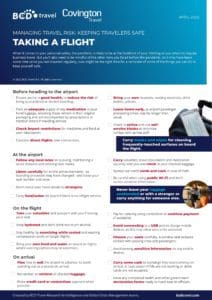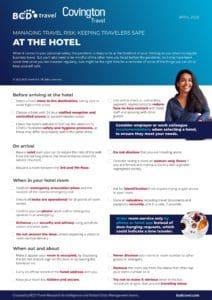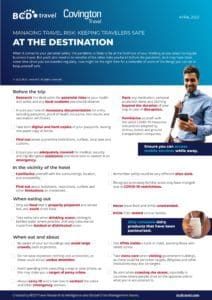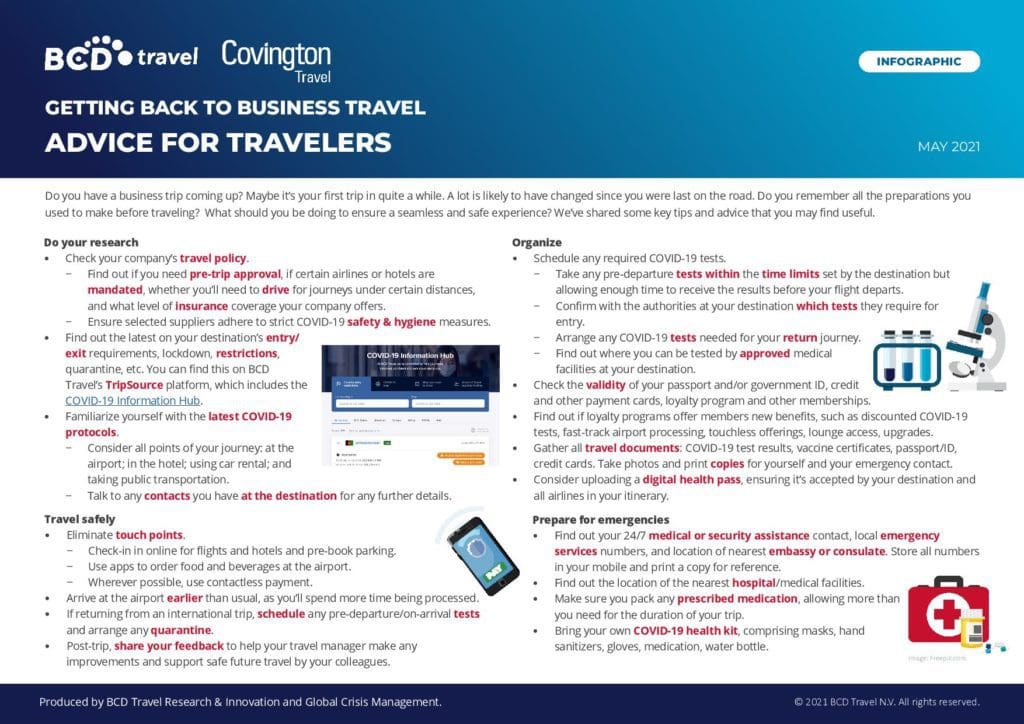
In the wake of a global pandemic that reshaped the way we work; corporate travel’s future is experiencing a profound evolution. As the dust settles on this new remote and hybrid work environment, how, when, and why business travel is undertaken needs to be reimagined. As a business traveler or a professional responsible for arranging corporate travel, it is crucial to adapt and embrace these changes for both personal and organizational success.
Business trips are no longer a perk reserved for the elite few. With distributed teams becoming the norm, corporate travel has evolved into an essential tool for nurturing organizational culture and facilitating collaboration. Meetings, summits, and company-wide events that bring employees face-to-face have become a lifeline for maintaining synergy despite physical distance.
The emergence of hybrid and remote work models has fostered an unyielding need for more frequent team gatherings, quarterly summits, and annual large-scale events. For companies that have fully embraced remote work, frequent corporate travel is crucial to preserving the special cultural fabric that defines their brand. Whether project teams gather at headquarters to brainstorm new campaigns or departments assemble for quarterly strategy sessions, these in-person interactions and shared experiences during work trips strengthen relationships and align employees around shared goals.
Tools like virtual reality and collaborative workspaces are bridging the distance between remote employees. But nothing can replace the camaraderie built during a team dinner, the creativity sparked during an in-person brainstorm, or the insider knowledge exchanged in sidebar conversations. Business travel facilitates these moments of human connection.
What does this mean for road warriors and their corporate travel coordinators in the future?
Business travelers now take on an elevated role as cultural ambassadors for your organization, catalysts for teamwork, and an essential part of maintaining the corporate culture that defines your company. The knowledge shared and connections made during sales trips, client meetings, and industry conferences directly impact company morale and team productivity. You are the conduit keeping your company’s spirit alive.
Corporate travel arrangers, on the other hand, play a pivotal role in orchestrating these transformative journeys. It’s not just about booking flights and hotels; it’s about understanding the objectives and culture of your organization and curating travel experiences that align with these principles. Annual sales kickoffs, virtual conferences, and team retreats should all be crafted intentionally to nurture workplace culture while enabling collaboration. Your role in understanding your company’s unique needs and translating them into travel experiences. has evolved to become a critical driver of organizational success.
Business travel in the new era is about connections, not just conveyance. As we embrace flexible work, trips designed to engage employees and strengthen bonds will become the lifeblood of organizational success. By evolving their approaches, business travelers and corporate travel managers can cultivate a vibrant cultural future, even in a virtual world.






Leave a Reply